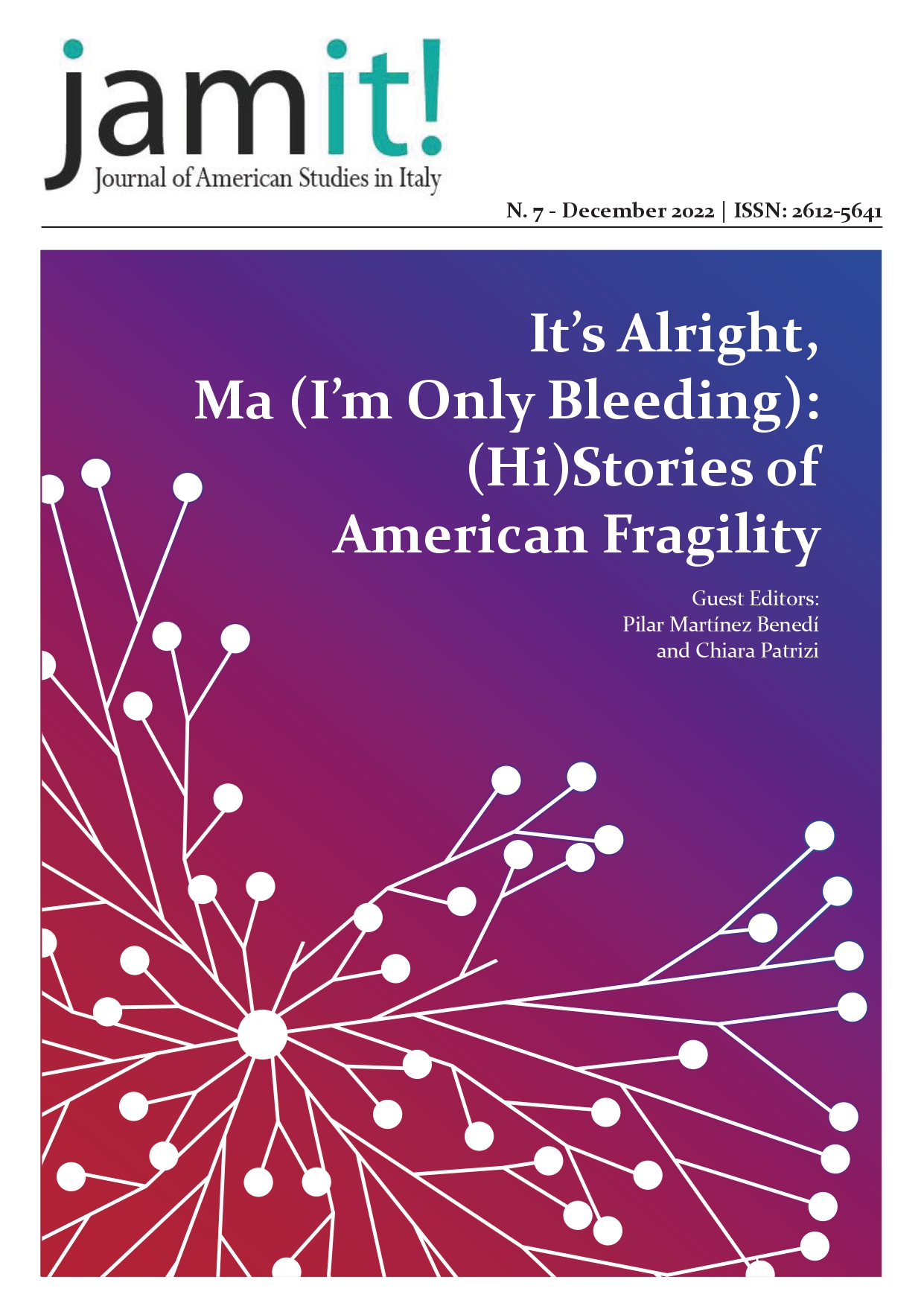IT’S G-D’S BLOODY RULE, MA
DOI:
https://doi.org/10.13135/2612-5641/6863Parole chiave:
Doctorow, Rosenbergs, Daniel, Judaism, New LeftAbstract
The title character of E.L. Doctorow’s The Book of Daniel (1971) is a graduate student in political history at Columbia University in the late sixties; he is also the son of fictional versions of Julius and Ethel Rosenberg, who were tried together for treason in1951 and executed in 1953. The time present of the novel is 1967, when Daniel’s long effort to relieve himself of the burden of memory is morphing into an obsession with figuring out guilt and thus distributing blame, for his own victimization as much as that of his parents. This essay argues that Daniel’s “trouble breathing” is a function of the utter and unvanquishable co-determination of the public and the private, household and nation-state, the socialist dream of equity and the ethical obligations of Judaism; that the interpretive strategies of Marx and Freud deliver superb insight into the over-wrought, over-determined family dramas of McCarthy-era Anti-Semitism and Abbie Hoffman’s Radical New Left; but that epistemological insight, even if it is as effectively domestic as it is socio-political, doesn’t mean release from ontological suffocation, especially not for Daniel. Cultural critique, however informed in its modern secularity by Judaic origins, doesn’t address all the matter in his heart. And it is Daniel’s ultimate embrace of the fiercest dimension of Chosenness, his ancestral ethos of suffering, including his grandmother’s bequeathing of the martyr’s pursuit of justification, that paradoxically drains his anguish, his anger, and his viciousness—with the help, in the book’s final spiraling turn between public and private, ethnos and ethos, of we readers who bear witness to the history written in Daniel’s Book.
##submission.downloads##
Pubblicato
Fascicolo
Sezione
Licenza
Authors who publish with this journal agree to the following terms:
- Authors retain the copyright and full publishing rights for their submissions to the journal.
- Authors grant the journal right of first publication with the work simultaneously licensed under a Creative Commons Attribution-NonCommercial-NoDerivatives 4.0 International License that allows others to share unedited work for non-commercial purposes with an acknowledgement of the work's authorship and initial publication in this journal.
- Authors are able to enter into separate, additional contractual arrangements for the non-exclusive distribution of the journal's published version of the work (e.g., post it to an institutional repository or publish it in a book), with an acknowledgement of its initial publication in this journal.
- Authors are permitted and encouraged to post their work online (e.g., in institutional repositories or on their website) prior to and during the submission process, as it can lead to productive exchanges, as well as earlier and greater citation of published work (See The Effect of Open Access).




